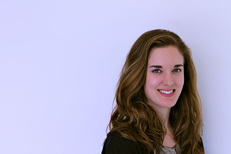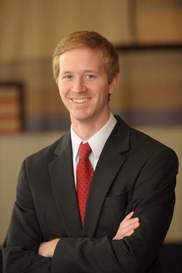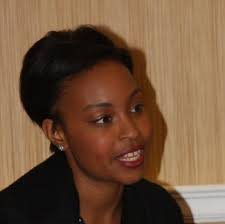
Facilitator: Ellie Canter
Director of Programs, Turning the Page
Why should YEP-DCers come to your session?
Our session will be a chance to hear from parent leaders at our partner schools and to directly experience the practices we employ to engage families through our Community Night workshop model. We have implemented our model at many District of Columbia Public Schools over the last 16 years and are consistently seeking feedback based on the different schools and communities that we partner with. This will be a learning session and a chance to explore practices and strategies we have used, as well as those that the group has to offer one another.
What are some of the biggest challenges in engaging parents in schools?
We have found that access to information can be a hurdle for authentic family engagement. Therefore, we work with school partners first to identify how families learn about opportunities to be partners in the education process and then to create resources and programming that inform families of their children’s progress throughout the school year. We also strive to create safe and inviting spaces for families that lessen the intimidation and/or adversarial relationships that can impede strong relationship-building between educators and parents.
How can we better bridge the gap between policy and practice in education?
We gain a great deal of insight from the families and teachers that we collaborate with at our partner schools. Their awareness of the “pulse” of their particular school context is immensely valuable to determining the impact of various policies. The inclusion of parent leaders and educators in policy decisions could diminish the gap in implementation.

Facilitator: Tyler Mains
Founder and Executive Director, Medical Education Resources Initiative for Teens (MERIT)
How can we better bridge the gap between policy and practice in education?
Educators often feel that policy experts don't understand daily challenges, and policymakers often believe that educators don't understand the big picture. Neither of these are true, and the only way we will ensure that all students receive a high-quality education (and high-quality health care) is for the two groups to communicate more frequently and openly.
Why should YEP-DCers come to your session?
Every teacher has witnessed the impact health has on students inside and outside of the classroom. Our healthcare system is not equal, and healthcare disparities will continue to worsen until the workforce mirrors the communities we serve. This interactive session will focus on MERIT's theory of change to solve both educational and health inequalities.
Briefly tell us about the MERIT program in Baltimore and why it deserves attention.
MERIT's mission is to eliminate healthcare disparities by transforming under-represented high school students into healthcare leaders. We provide seven years of academic, professional, and social support to change the trajectory of our scholars' lives so they will be poised to influence critical decisions regarding healthcare. Our scholars are not represented in the healthcare workforce today, but with an increasingly diverse American population, they will need to be our healthcare providers tomorrow.

Facilitator: Lindsay Torrico
Director of Policy and Advocacy, United Way Worldwide
What did you most enjoy about previous YEP-DC conferences?
No question: The people. The sessions are thought-provoking and the speakers are inspiring — but what I took away is that there are so many brilliant, passionate change-makers in D.C. from the classroom to Capitol Hill who are committed to improving education. The opportunity to network, strategize, and identify collective action with other young education professionals is invaluable!
Why should YEP-DCers come to your session?
Advocacy is an art and a science. While every issue campaign is different, there are proven strategies and best practices to advocate effectively. My session is about making sure that you have the right elements (i.e., stakeholder engagement, community outreach, coalition-building, communications and marketing, etc.) in place to galvanize and mobilize people to action.
What is your experience in education advocacy?
I've spent 10 years working in education policy and children's advocacy. I started my career interning for my hometown congressman, who is a staunch education advocate and champion for low-income children and their families. After working on the Hill, I wanted the opportunity to work at the local level and better understand the education challenges on the ground, so I did several fellowships for local nonprofits and government offices. Currently, I work at the United Way Worldwide, and it is the perfect blend of federal policy action and local advocacy engagement. I have access to federal policy decision-makers but still have my pulse on the challenges and solutions at the local and state level.

 RSS Feed
RSS Feed